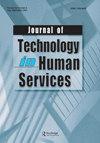从对来源的信任到对内容的信任:父母对基于证据的育儿建议应用程序的第一印象后对可信度的评价如何转变
IF 1.5
Q2 SOCIAL WORK
引用次数: 0
摘要
摘要本研究考察了父母对循证育儿应用程序的信任是如何在最初使用前和使用过程中形成的。在106名父母的样本中,研究发现信任与使用应用程序的意图有关。发展科学中的一般信任预测了第一次使用应用程序之前对应用程序的信任。透明度被确定为促成首次使用后信任变化的关键因素,而内容质量具有边际效应。总体而言,该研究强调了对科学学科的信任、与内容相关的透明度和质量线索对于有效地以数字方式提供育儿建议的重要性。我们要感谢Kathrin Fedeler、Silvia Scholz、Marie Landwers和Annika Gausche对内容开发和数据收集的贡献,以及Matthias Walther、Marc Schröder和Stephan Domke对应用程序开发和设计的贡献。特别感谢我们的研究协调员,乌尔里克·王尔德。在此,我们要感谢为这项研究付出时间和精力的家长们。概念:Eva Strehlke, Rainer Bromme, Joscha Kärtner;数据收集:Eva Strehlke;数据管理:Eva Strehlke;正式分析-计划:Eva Strehlke, Joscha Kärtner;形式分析:Eva Strehlke;可视化:Eva Strehlke;手稿-原稿准备:Eva Strehlke;审稿编辑:Rainer Bromme, Joscha Kärtner;监督:Joscha Kärtner, Rainer Bromme。声明作者没有与本文内容相关的竞争利益需要声明。伦理声明:本研究经哈尔滨工业大学心理学系研究伦理委员会批准(批准号:no. 5)。2021-21-ESt),并按照赫尔辛基宣言和德国心理学会(dpps)、德国专业心理学家协会(BDP)和美国心理学会(APA)的伦理原则进行。它不涉及侵入性或其他道德上有问题的技术,也没有欺骗。所有参与研究的个体都获得了知情同意。数据可得性声明支持本研究结果的数据可根据通讯作者的合理要求获得。本研究报告的研究是由德国研究基金会(研究培训小组DFG 1712-2)支持的一个更大项目的一部分。本文章由计算机程序翻译,如有差异,请以英文原文为准。
From Trust in Source to Trust in Content: How Parents’ Evaluation of Trustworthiness Shifts After First Impressions of an Evidence-Based Parenting Advice App
AbstractThis study examined how parents’ trust in an evidence-based parenting app is formed before and during initial use. In a sample of 106 parents, the study found that trust was related to intention to use the app. General trust in developmental science predicted trust in the app prior to first use. Transparency was identified as the key factor contributing to changes in trust after first use, while content quality had a marginal effect. Overall, the study highlights the importance of both trust in scientific disciplines and content-related transparency and quality cues for effective digital delivery of parenting advice.Keywords: Trustparentingdigitalevidence-basedtransparencysource AcknowledgementsWe would like to thank Kathrin Fedeler, Silvia Scholz, Marie Landwers, and Annika Gausche for their contributions to content development and data collection, and Matthias Walther, Marc Schröder, and Stephan Domke for their contributions to app development and design. Special thanks go to our research coordinator, Ulrike Wilde. We wish to thank the parents who contributed their time and effort in this study.Credit author statementConceptualization: Eva Strehlke, Rainer Bromme, Joscha Kärtner; Data collection: Eva Strehlke; Data Curation: Eva Strehlke; Formal analysis—planning: Eva Strehlke, Joscha Kärtner; Formal analysis: Eva Strehlke; Visualization: Eva Strehlke; Manuscript—original draft preparation: Eva Strehlke; Manuscript—review and editing: Rainer Bromme, Joscha Kärtner; Supervision: Joscha Kärtner, Rainer Bromme.Disclosure statementThe authors have no competing interests to declare that are relevant to the content of this article.Ethics statementThis study was approved by the Research Ethics Committee of the Psychological Department, University of Münster (approval no. 2021-21-ESt) and was conducted in accordance with the Declaration of Helsinki and the Ethical Principles of the German Psychological Society (DGPs), the Association of German Professional Psychologists (BDP), and the American Psychological Association (APA). It involved no invasive or otherwise ethically problematic techniques and no deception. Informed consent was obtained from all individual participants included in the study.Data availability statementThe data that support the findings of this study are available from the corresponding author upon reasonable request.Additional informationFundingThe research reported in this study was part of a larger project supported by the German Research Foundation (Research Training Group DFG 1712-2).
求助全文
通过发布文献求助,成功后即可免费获取论文全文。
去求助
来源期刊

JOURNAL OF TECHNOLOGY IN HUMAN SERVICES
SOCIAL WORK-
CiteScore
4.20
自引率
6.70%
发文量
6
期刊介绍:
This peer-reviewed, refereed journal explores the potentials of computer and telecommunications technologies in mental health, developmental disability, welfare, addictions, education, and other human services. The Journal of Technology in Human Services covers the full range of technological applications, including direct service techniques. It not only provides the necessary historical perspectives on the use of computers in the human service field, but it also presents articles that will improve your technology literacy and keep you abreast of state-of-the-art developments.
 求助内容:
求助内容: 应助结果提醒方式:
应助结果提醒方式:


